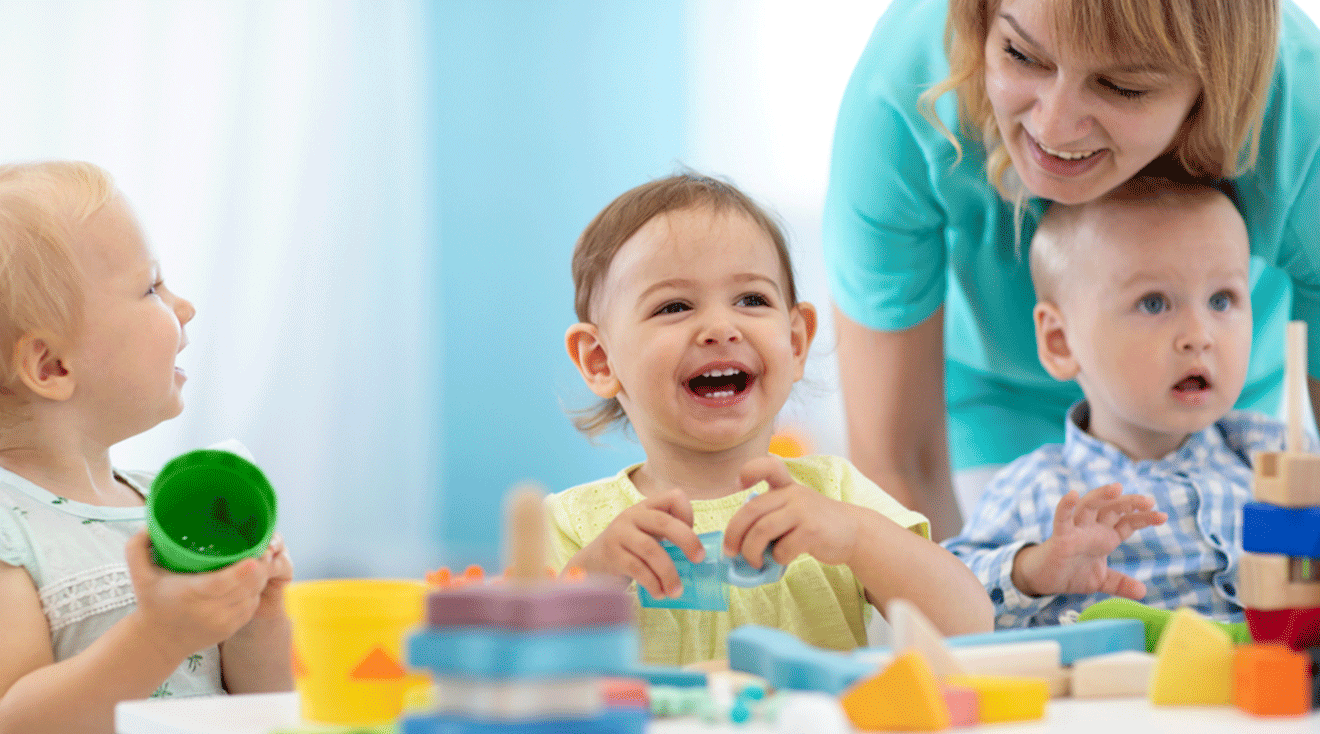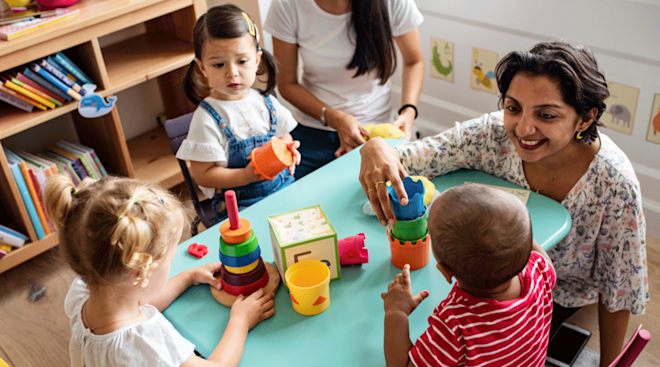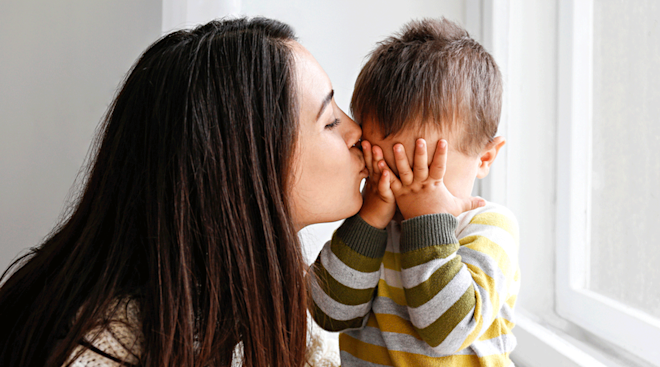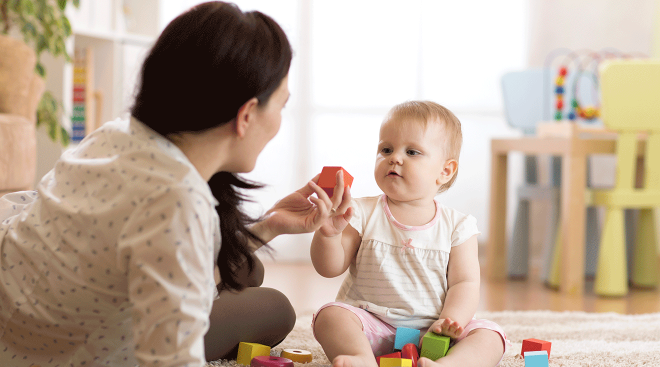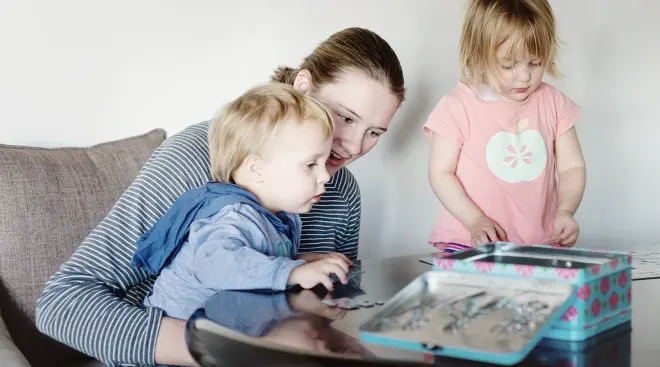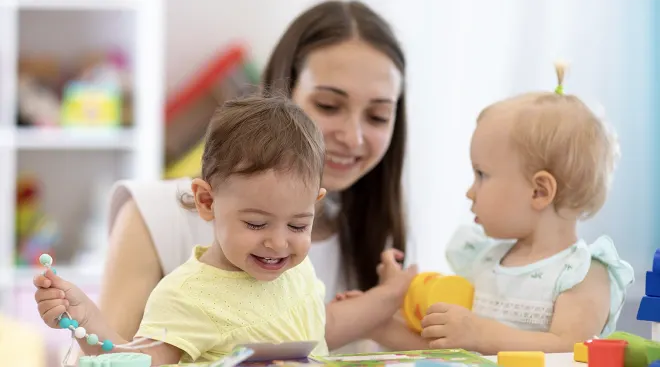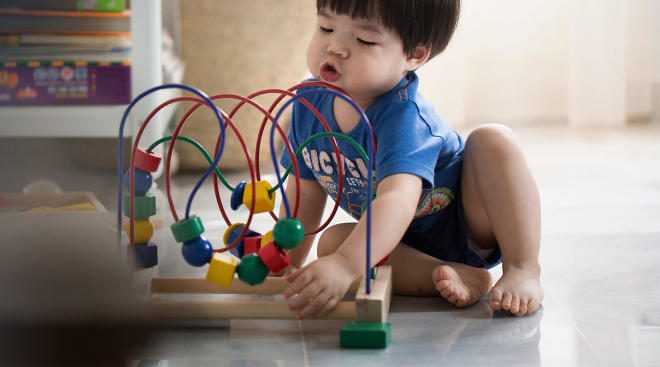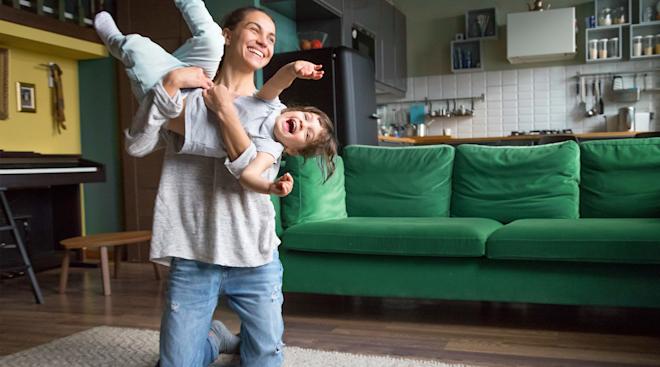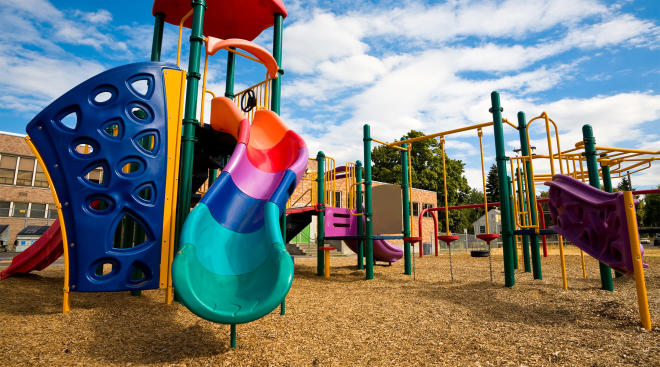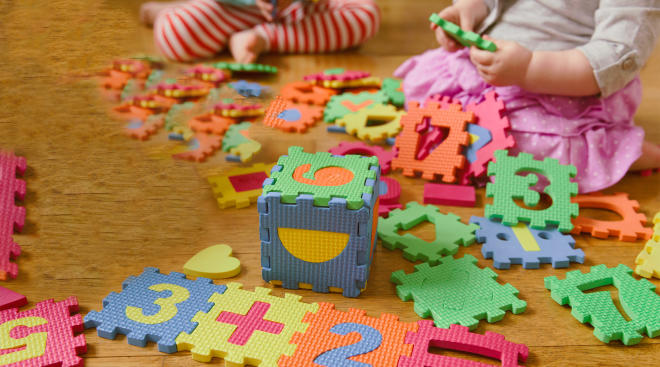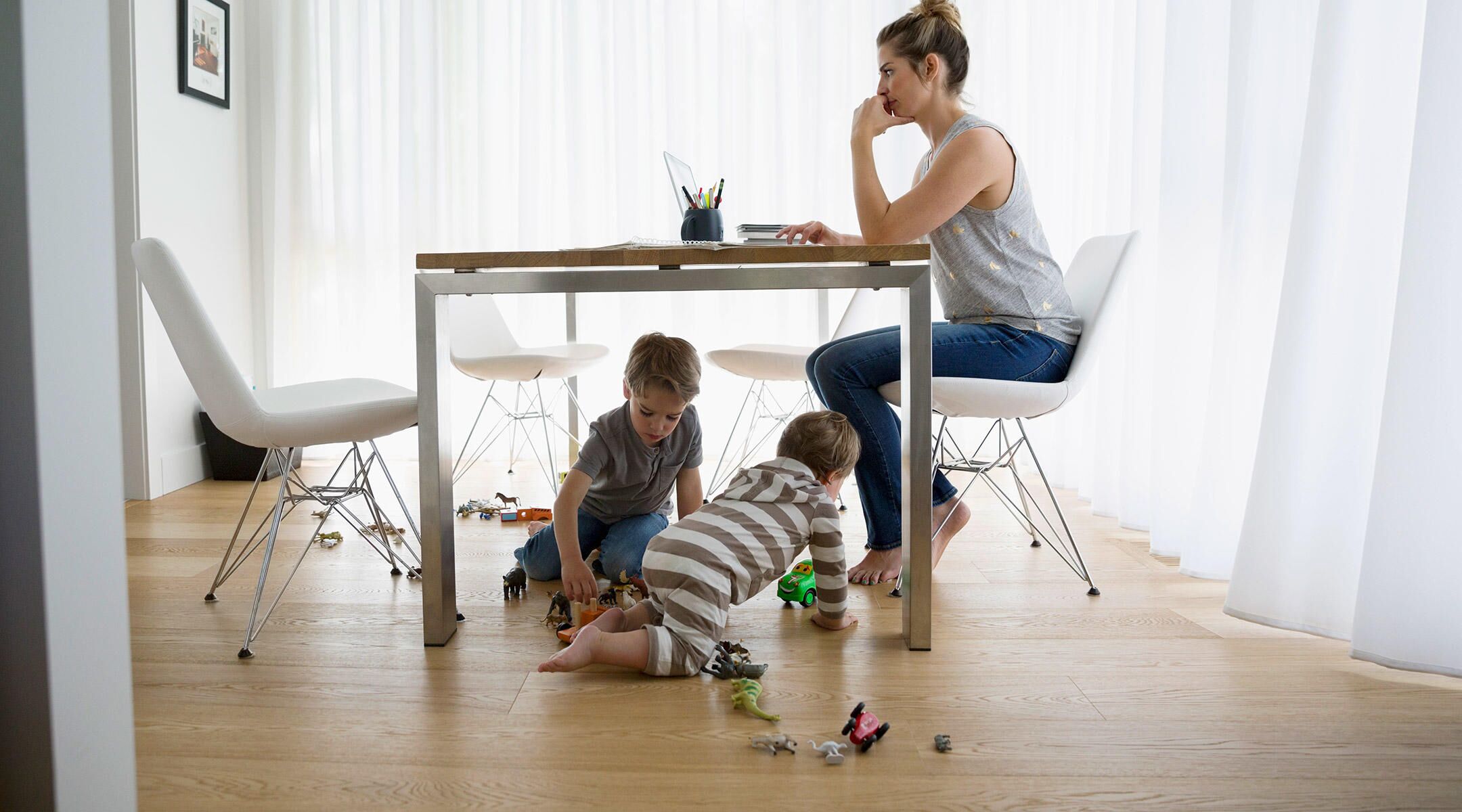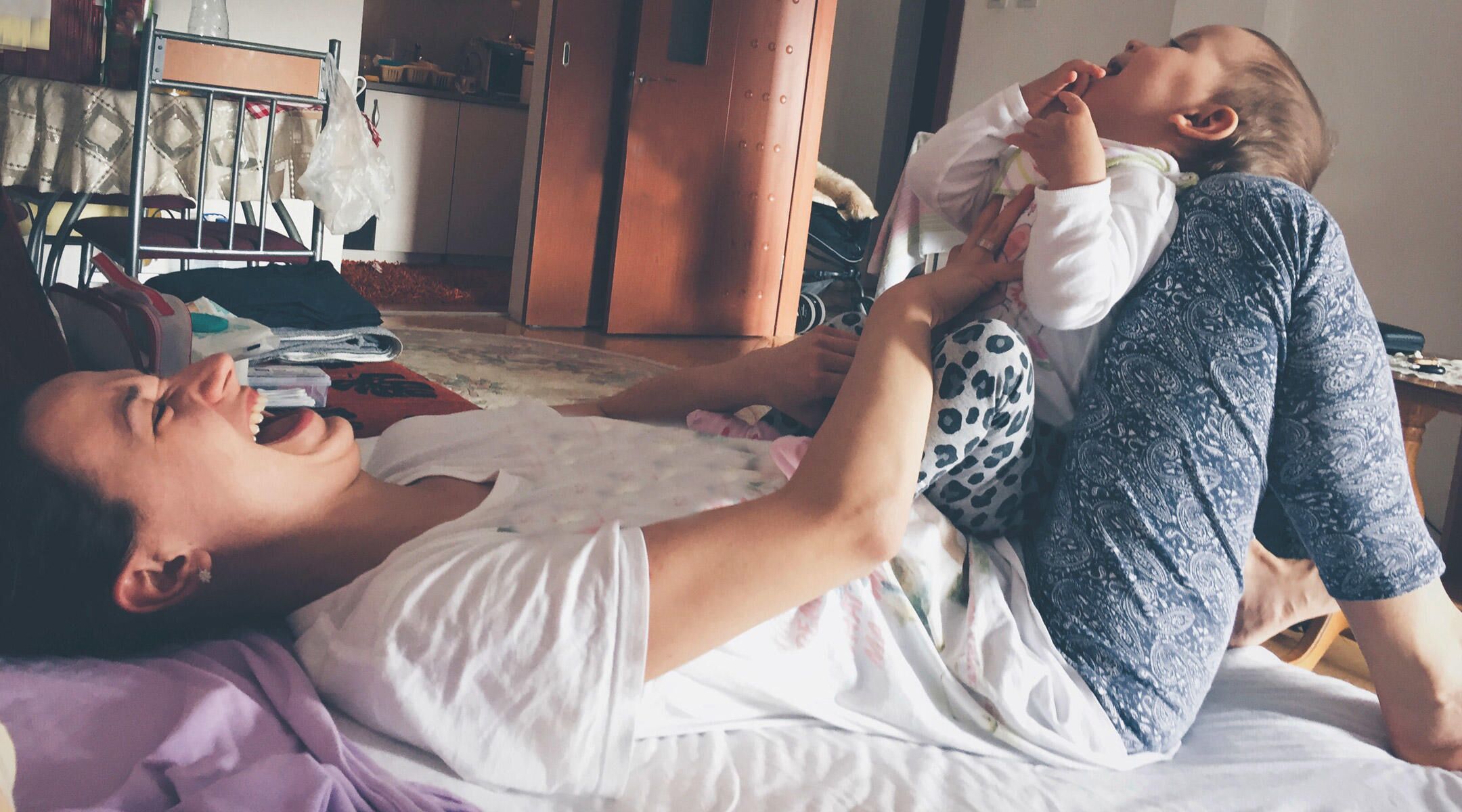When to Start Looking for Baby Daycare (and How to Do Your Search)
So, you found out you’re expecting a baby? Congratulations! Now, it’s time to start planning. If you intend to return to work after baby, finding childcare should be at the top of your to-do list. There are so many things to consider when exploring daycare options, and you’ll want to do your due diligence. Even if you don’t plan on enrolling baby right away, you’ll need to get ahead of the curve to avoid being placed on the dreaded waitlist (trust us: these can be lengthy!). Ready to get your search started? Read on to learn our top tips for when and how to find the best baby daycare for your little one and your family.
Although the right time to look for a daycare depends on the competitiveness in your area, it’s always best to start your search as soon as possible. For baby daycares, that likely means kicking this off as soon as you find out you’re expecting. “In highly competitive areas, it’s best to start researching options before baby’s born! While this may be surprising to hear, limited supply and increasing demand have generated lengthy waitlists, with some reaching a year,” says Addison Arnett, enrollments and strategy manager at Wonderschool, a platform for families to find child care options to fit their needs.
The timing will vary if you’re in a less busy area or are searching for care for an older baby or toddler. “In non-competitive areas, for children under the age of 2, we recommend starting a search at least three to six months before you need care, and one to four months before you need care if your child is over 2 years old,” says Arnett.
Finding a good daycare is important to all working parents, but what exactly makes a daycare center high quality? While there’s infinite value in trusting your gut, there are helpful tools and questions to guide your decision-making process. Arnett says, “In general, when touring child cares, look for programs that prioritize children’s safety and well-being and child care providers that have a thorough understanding of child development.”
Setu Shah, founder and CEO of Financial Doula, a coaching and education platform dedicated to helping first-time, expecting parents financially prepare for the first year of parenthood and beyond, says you want to evaluate the quality and the price tag. “The best type of early childcare, in my opinion, is one that includes some form of structure, age-appropriate learning, healthy eating, proper hygiene, a safe environment and a thoughtful, dedicated caregiver… all at an affordable price,” she says. “It can be hard to find all of these (especially that last one) so understanding what your family is willing to compromise on can be important.”
The National Association for Education of Young Children (NAEYC), a professional membership organization that works to promote high-quality early learning for all young children, birth through age 8, has a search tool to help you find centers that meet their established standards. You can also use their criteria to help formulate questions to ask: “Having your questions and thoughts organized and ready to reference while you’re in the classroom or speaking with the director is key,” says Arnett.
Beyond the standard internet sleuthing, another great way to find a good baby daycare: rely on word of mouth. “Two of my best tips for finding the right daycare are asking for recommendations and using social media,” says Angela Terry, MSW, executive director at Bedford Stuyvesant Early Childhood Development Center in Brooklyn, New York. “Parents can talk to other families with children of the same age or older. Engaging with parents can provide valuable insights into their experiences with various childcare options.”
Dominique Ellis Falcon, mom of one in Baltimore, Maryland, agrees: “First and foremost, ask your friends and parents in your area that you know and trust… If you live in a location where daycare acceptance is tight (which is almost everywhere these days), poll parents in the area on their daycare experiences at the top of your list.”
Finally, try to go on a few baby daycare tours during active hours, if possible, so you can see the adults interacting with the littles. And ask plenty of questions: Do they provide diapers? Can you come in and breastfeed? Do they have a drop-in policy? What’s the security situation? Do they provide meals when baby gets a little older? No question is too big or too small.
Frequently Asked Questions
What should I do if there’s a waitlist at my chosen daycare?
The harsh truth is there will probably be a waitlist at your chosen daycare. Plan for this if you can, and start your search as soon as possible. “It’s a good idea to anticipate being on a waitlist and signing up even if you prefer not to wait. A spot could open up earlier than expected,” says Terry.
What’s the best age to start baby daycare?
There’s no definitive best age to start baby daycare. “It’s whatever age works best for you—there’s no cut-and-dried answer,” says Arnett. “Every parent who’s been through this process will have their own opinion about what route is best, but every family is different. Whatever you feel is right and works for your family, is the right answer.”
What’s the best type of childcare?
There’s value in each early child care type—whether you choose a daycare center, a family care center or a nanny. “The ideal early childcare program is inclusive and meets the diverse needs of all children,” says Terry. “Choosing childcare centers that maintain a ratio of two to three adults in the room at all times ensures that children are engaged and learning throughout the day. Providing pathways for open communication with the center is also essential.”
What should I do if I’m late to the daycare search?
If you’re late to the daycare search and your ideal daycare center is temporarily out of reach, there are other options to consider like family care centers and nanny shares. “For parents who are late to the daycare search, all is not lost! There are a couple of paths you can take—either you can opt for another daycare that has a shorter waitlist and fits your timeframe or wait for your desired daycare and find temporary childcare in between,” says Shah.
How expensive is daycare?
Here’s the hard news: Daycare prices have been increasing dramatically over the last few years. According to Care.com’s 2024 Cost of Care Report, the national average weekly cost of daycare for one infant in 2023 was $321 (up from $284 in 2022). The weekly cost of daycare for one toddler was slightly lower at $293. The average nanny costs significantly more ($766 per week for one infant).
Finding a baby daycare that’s aligned with your values and needs—that also has availability and fits within your budget—can feel like searching for a unicorn. With some planning and luck, though, you can join the happy families that have found a just-right daycare fit for their little ones.
Plus, more from The Bump:
Addison Arnett serves as enrollments and strategy manager at Wonderschool, a platform for families to find child care options to fit their needs.
Angela Terry, MSW, is the executive director at Bedford Stuyvesant Early Childhood Development Center in Brooklyn, New York.
Setu Shah is the founder and CEO of Financial Doula, a coaching and education platform dedicated to helping first-time, expecting parents financially prepare for the first year of parenthood and beyond.
Care.com’s 2024 Cost of Care Report
Learn how we ensure the accuracy of our content through our editorial and medical review process.
Navigate forward to interact with the calendar and select a date. Press the question mark key to get the keyboard shortcuts for changing dates.
































